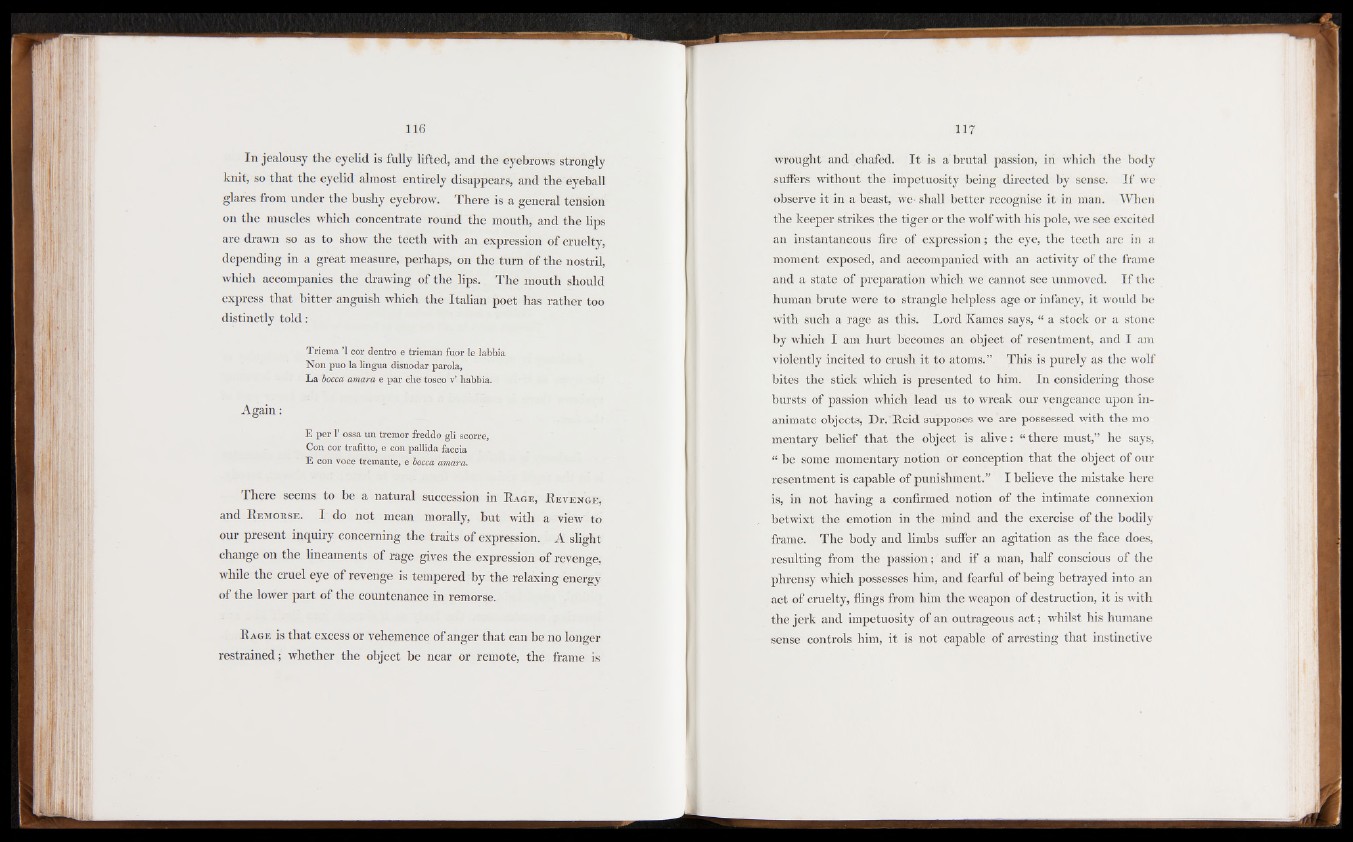
In jealousy the eyelid is fully lifted, and the eyebrows strongly
knit, so that the eyelid almost entirely disappears, and the eyeball
glares from under the bushy eyebrow. There is a general tension
on the muscles which concentrate round the mouth, and the lips
are drawn so as to show the teeth with an expression of cruelty,
depending in a great measure, perhaps, on the turn of the nostril,
which accompanies the drawing of the lips. The mouth should
express that bitter anguish which the Italian poet has rather too
distinctly told:
Triema ’1 cor dentro e trieman fuor le labbia
Non puo la lingua disnodar parola,
La bocca amara e par che tosco v’ habbia.
Again:
E per 1’ ossa un tremor freddo gli scorre,
Con cor trafitto, e con pallida faceia
E con voce tremante, e bocca amara.
There seems to be a natural succession in R age, R evenge,
and R emorse. I do not mean morally, but with a view to
our present inquiry concerning the traits of expression. A slight
change on the lineaments of rage gives the expression of revenge,
while the cruel eye of revenge is tempered by the relaxing energy
of the lower part of the countenance in remorse.
R age is th a t excess or vehemence of anger th a t can be no longer
restrain ed ; w hether th e object be near or rem ote, th e frame is
wrought and chafed. It is a brutal passion, in which the body
suffers without the impetuosity being directed by sense. If we
observe it in a beast, we-shall better recognise it in man. When
the keeper strikes the tiger or the wolf with his pole, we see excited
an instantaneous fire of expression; the eye, the teeth are in a
moment exposed, and accompanied with an activity of the frame
and a state of preparation which we cannot see unmoved. If the
human brute were to strangle helpless age or infancy, it would be
with such a rage as this. Lord Kames says, “ a stock or a stone
by which I am hurt becomes an object of resentment, and I am
violently incited to crush it to atoms.” This is purely as the wolf
bites the stick which is presented to him. In considering those
bursts of passion which lead us to wreak our vengeance upon inanimate
objects, Dr. "Reid supposes we are possessed with the momentary
belief that the object is alive: “ there must,” he says,
“ be some momentary notion or conception that the object of our
resentment is capable of punishment.” I believe the mistake here
is, in not having a confirmed notion of the intimate connexion
betwixt the emotion in the mind and the exercise of the bodily
frame. The body and limbs suffer an agitation as the face does,
resulting from the passion; and if a man, half conscious of the
phrensy which possesses him, and fearful of being betrayed into an
act of cruelty, flings from him the weapon of destruction, it is with
the jerk and impetuosity of an outrageous act; whilst his humane
sense controls him, it is not capable of arresting that instinctive